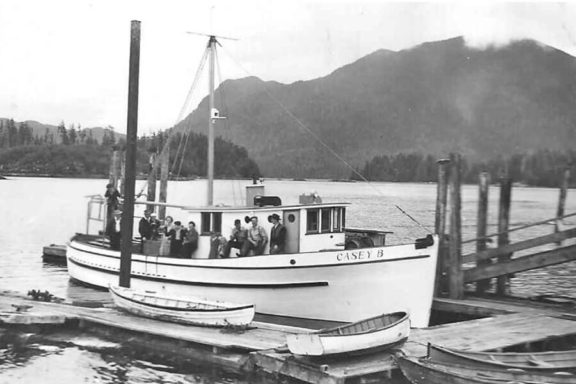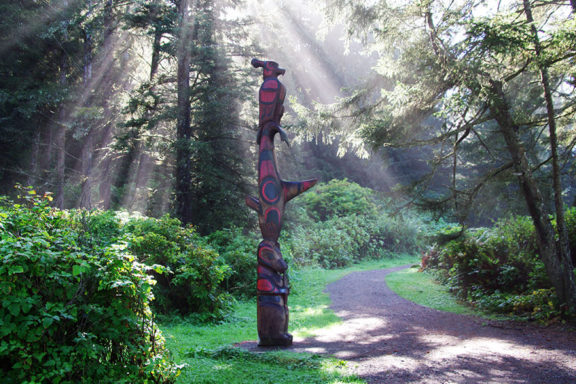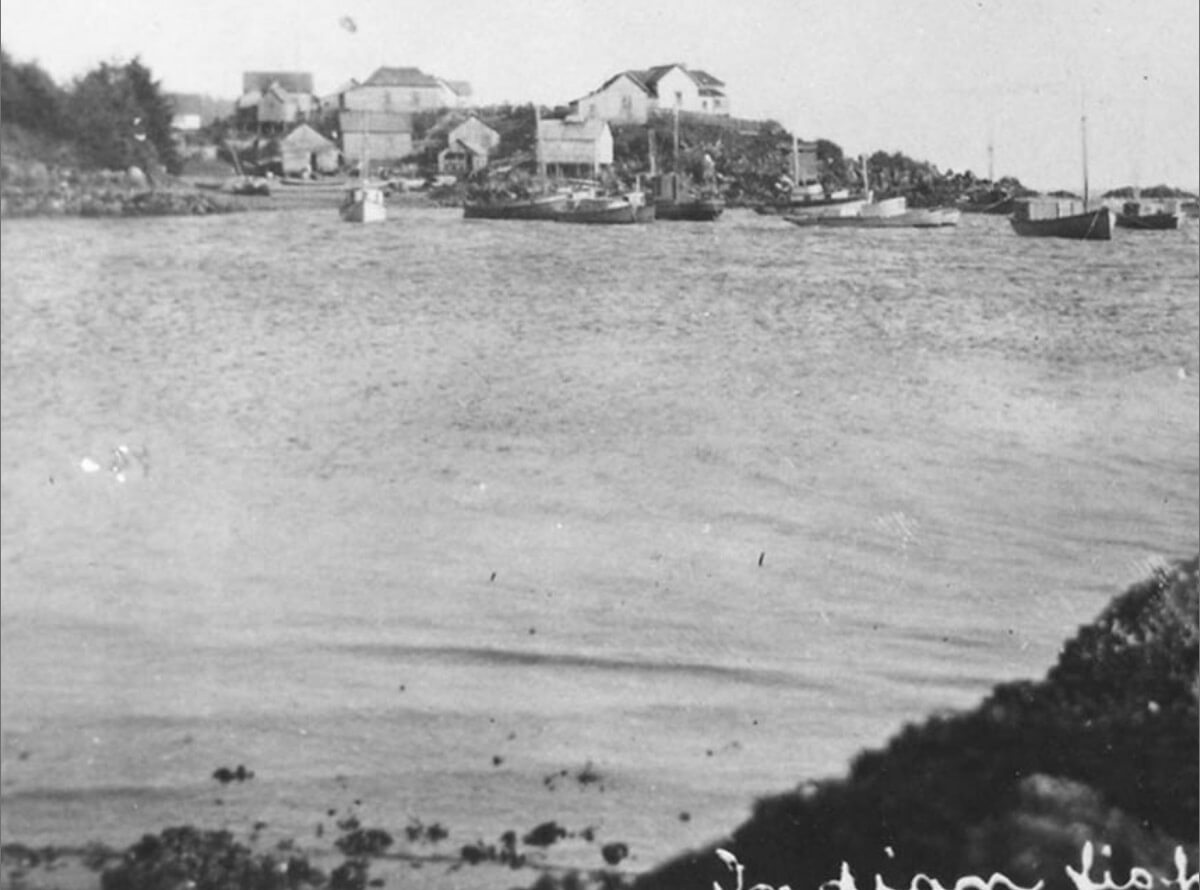The Ucluth Peninsula is the traditional territory of the Yuułuʔiłʔatḥ (pronounced Yuu-thlu-ilth-ath) – Ucluelet First Nation, of the nuučaanuł (Nuu-chahnulth) people. The Yuułuʔiłʔatḥ have been caretakers and stewards of this land since time immemorial, with stories and legends dating back thousands of years. The land and ocean provided food and supported livelihood through historic village sites located along the Peninsula. A significant cultural teaching in Nuu-chah-nulth is ‘cawaaksamin’ (pronounced tsa-wok-saa-min) or ‘We are all one.’
“It was on the west coast of Vancouver Island, just 100 km north of Ucluelet, that Captain James Cook of the British Navy first set foot, in 1778. Captain Charles Williams Barkley followed in 1787, arriving near Ucluelet harbour in Barkley Sound in search of sea otter pelts.
In 1870, fur sealers settled in the area. Captain Francis, the owner of several sealing schooners, established a trading post in Ucluelet harbour. Ucluelet began to grow along with the sealing industry and became a bustling little town.
European Settlers meet First Nations in the 1890’s as more settlers began arriving on the news of pending road access from Port Alberni. Fishing was excellent and gold was to be found on Florencia Bay. The stories of gold were correct, but Tourism Ucluelet Cultural Content Recommendations and General Information 15 By the 1950s forestry started to dominate life on the coast. For close to 40 years, forestry provided many families in Ucluelet with a solid income. Historically, and continuing today, commercial logging and fishing play a part in Ucluelet’s economy. Ucluelet remains one of Canada’s largest ground fishing ports; where you find an abundance of salmon, halibut, cod, and herring. it was so fine and in such little quantity that it could not be worked profitably.
The Presbyterian Church built a Mission House and school and a doctor was dispatched to the area in 1898. By 1900, more settlers had moved to the west coast of Vancouver Island” (provided by the District of Ucluelet).
“In 1891 Will Sutton and his younger brother James claimed pre-emption land on the northeast side of Ucluelet Inlet. The Sutton brothers were welleducated, ambitious and arrived in Ucluelet with substantial financial backing. Together they built a large wharf, general store and sawmill” (provided by Ucluelet & Area Historical Society).
George Fraser, a world-renowned Scottish Horticulturalist, arrived in 1894 acquiring 236 acres in Ucluelet. Fraser is responsible hybridizing specialty in rhododendrons, many original Rhodos from Fraser’s gardens remain intact to this day.
“Development began bringing infrastructure and services of all kinds. The Canadian Pacific Railway operated a small freight boat sailing from Victoria three times a month. In 1903 a whaling station was established in Barkley Sound. In Ucluelet a lighthouse, a government telegraph office, and a lifeboat station were built. As the First World War began, the fishing industry had started” (provided by the District of Ucluelet). Japanese fishers [from Steveston, BC] started settling in Ucluelet around 1920.
“When World War II began the Government of Canada took measures to protect Vancouver Island’s west coast from potential invasions. The military established a seaplane base in Ucluelet and a land base at Long Beach. The road to Tofino, which had been worked on for thirty years was finally completed” (provided by the District of Ucluelet).
By the 1950s forestry started to dominate life on the coast. For close to 40 years, forestry provided many families in Ucluelet with a solid income.
“Historically, and continuing today, commercial logging and fishing play a part in Ucluelet’s economy. Ucluelet remains one of Canada’s largest ground fishing ports; where you find an abundance of salmon, halibut, cod, and herring. Tourism Ucluelet Cultural Content Recommendations and General Information 16 Ucluelet continued to prosper after the war luring more residents hoping for prosperity to the beautiful region. In August 1959, the long awaited road to Port Alberni was finally opened Ucluelet became incorporated on February 26th, 1952. Its status was changed to a District in 1997 to reflect, in part, the increasing population and increasing importance within the region” (provided by the District of Ucluelet).



